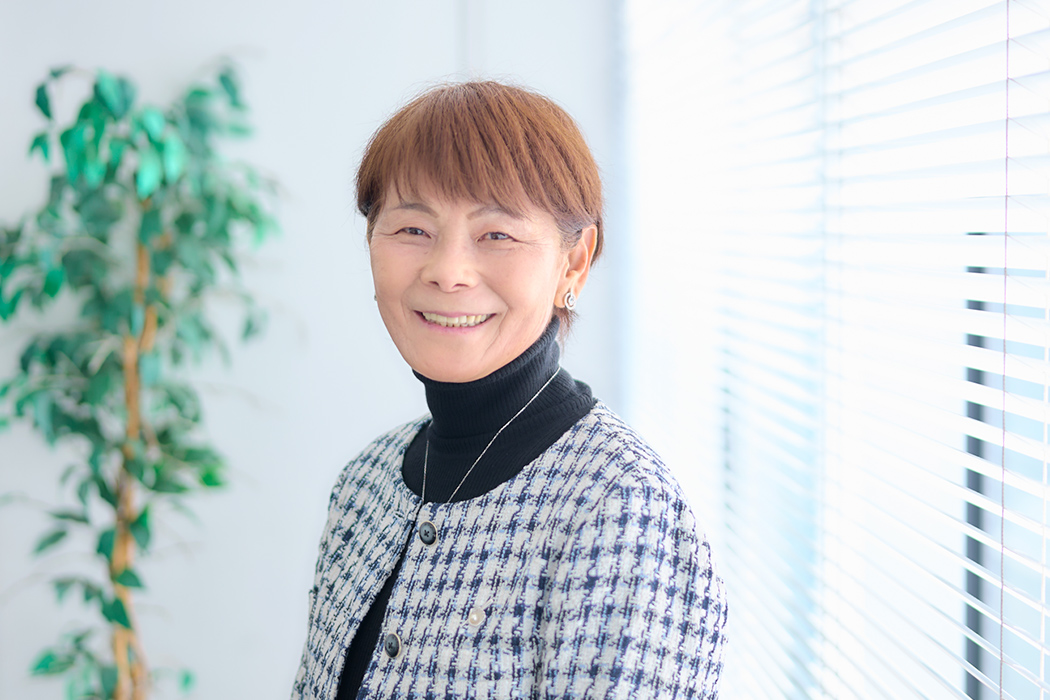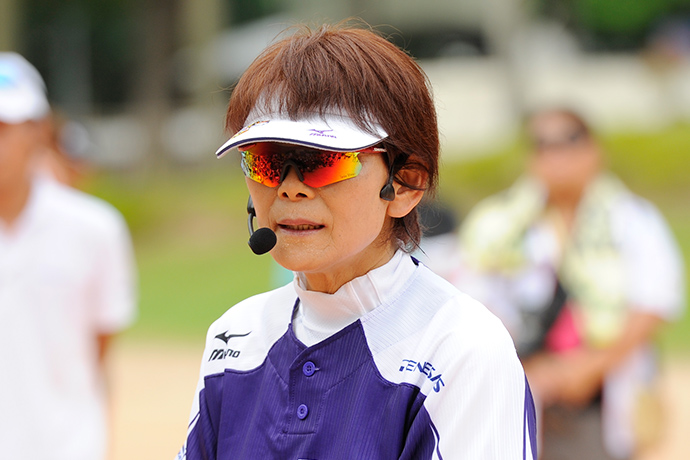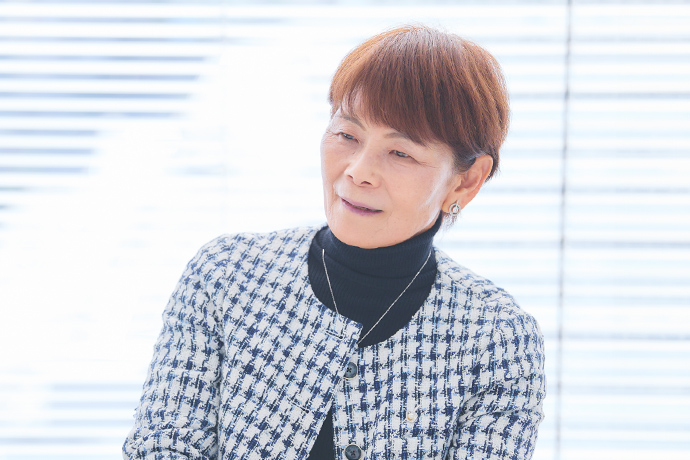
Expert Views

Taeko UtsugiFacing everyone earnestly and sincerely
First Published in Japanese in March 2024 [4 parts]
Part 2: Leaders must always be aware they are being watched

Taeko Utsugi has spoken to us about her coaching method and principles. “Making the most of my players makes the most of me as a coach.” These words are sure to resonate with many leaders. In this section, we dig deeper into her attitude as a coach.
── Many players admire you although you coached them so strictly. Why do you think this is?
I always made a point of communicating my policies clearly. I would tell new players: “This is the kind of person I am. I will be tough on the pitch. I expect you to always give 100% and be considerate in your lifestyle and the way you communicate with others.” By making these things clear from the start, players know what to expect. They understand what sort of person I am and my methods.
I have always tried to face players openly, both physically and mentally. At training camps and accommodation, I would often make time to talk with players after training. Of course, we were always under scrutiny on the pitch and in everyday life. It’s important to draw a line between players and coaches. But I am a woman, just like the players, and to some of them I am probably a kind of parent figure as well as a senior softballer. Talking openly in our “off time” was a valuable opportunity to hear how they were doing.
── The players must have learned a lot from seeing you that way.
When you have been placed in a position of leading others, you must first set a good example. Younger players grow up watching what I do. If a coach is always catching colds, she can’t tell the players not to catch one.
Players watch the coach more than we realize. I experienced this when I first became a manager. After a player hit a walk-off home run, she told me: “When I stepped up to the plate and saw your face, I knew I could hit it!” But then another player said: “I was so nervous because I could see your face, I couldn’t hit the ball…”
When I realized that the players’ mental state is affected by seeing the manager’s facial expression, I started wearing dark sunglasses to hide my eyes! In the workplace, junior colleagues are always watching the behavior and expressions of managers and senior colleagues. You should never forget this if you are in a leadership position.

Utsugi’s trademark sunglasses and sun visor
── As younger players join the national team, have you ever sensed a generation gap or found it difficult to coach them?
In my day, we were just told “do this!” without any explanation, but these days, you must make sure to give praise while giving advice. “That’s good. But try doing this…” That’s the kind of consideration that’s required now.
In some ways, it can be difficult for people to change their ways of doing things, but “that’s how it was in the old days” is nothing more than an excuse. We are living in the present, not in the past, so if you don’t adapt to the times, you will get left behind. But having said that, there are certain non-negotiable standards.
── What do you mean by non-negotiable standards?
The first thing is politeness and manners. Everyday greetings, consideration for other people, and so on; how we should behave as people. I think this is something that never changes.
Gratitude is important, too. How much gratitude do young people of today show for their grandparents and great-grandparents? You are only here because of your ancestors. I think schools and parents should educate children about this more.
Gratitude towards our parents and forerunners is something we must never forget. I try to live my life with a sense of gratitude to the teacher who introduced me to softball, the players who have made my dreams come true, and my predecessors and parents who raised me. I hope company employees, too, will never forget to feel grateful towards the people above them in the workplace.

── It’s clear that you want players to grow as people, not just as players.
Softball is a corporate sponsored sport. Players work every day, from morning to evening. I always told them to do that job wholeheartedly. “At your workplace, you are not a star. You are an employee just like everybody else.”
I would meet with the manager at each player’s workplace and ask them to give the players positions of responsibility, because that sense of responsibility will be reflected in how they play for the team. Before becoming a great player, I want them to be a great person. That was always my wish for the players I coached.